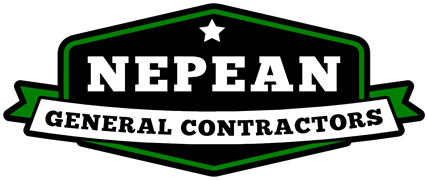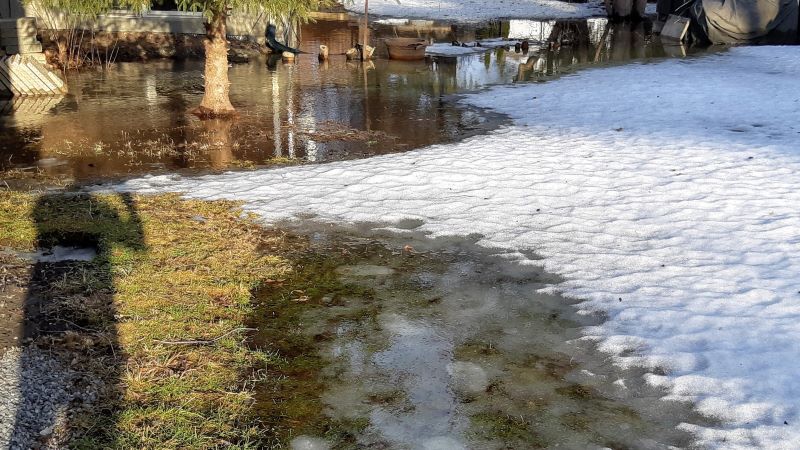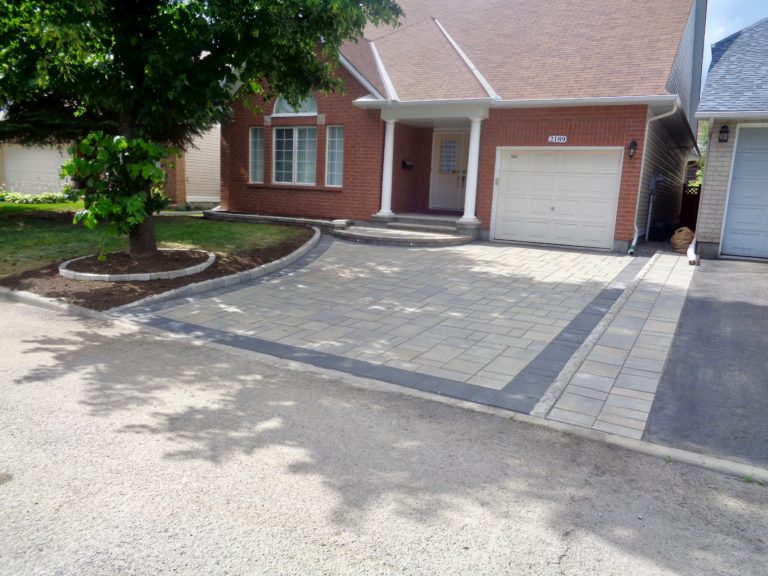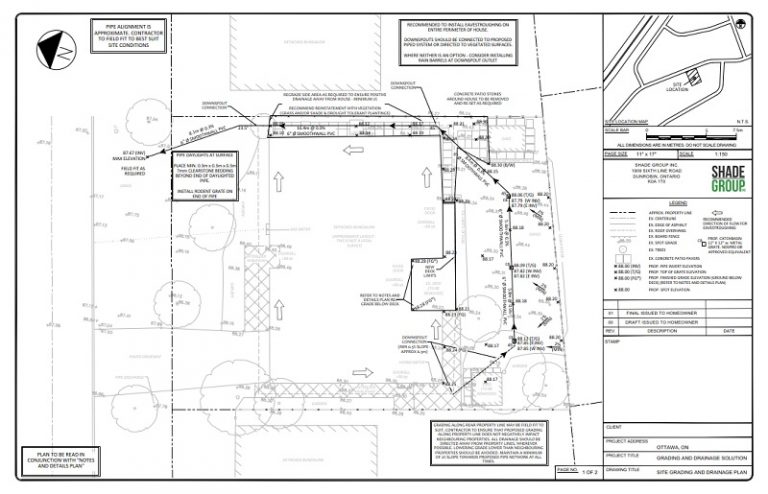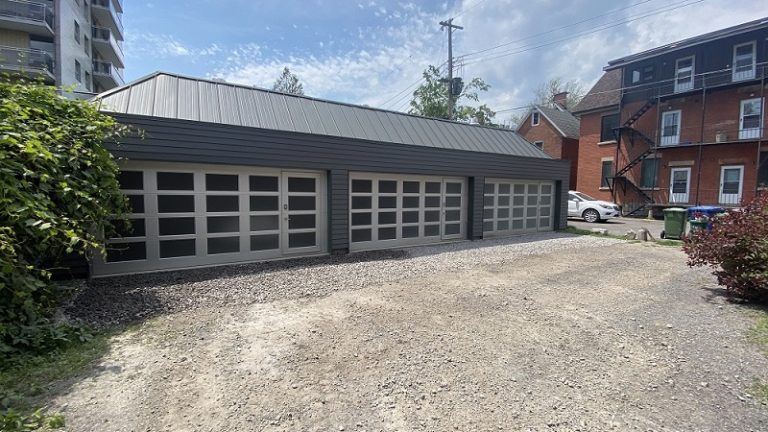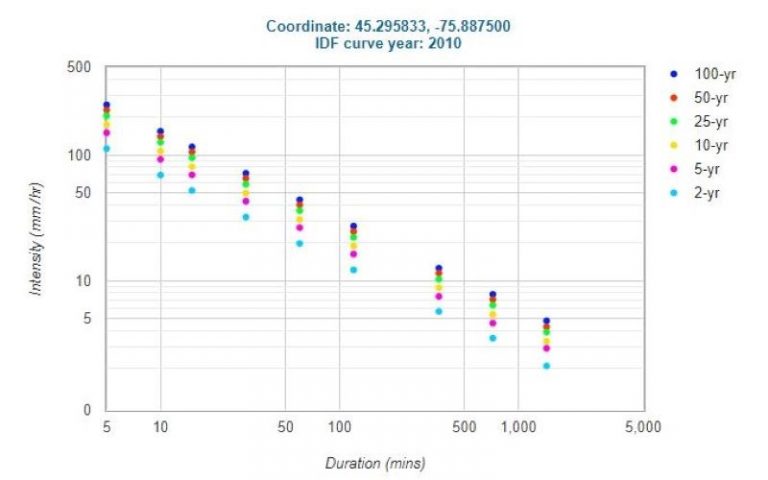NGC Drainage School – Understanding Spring Flooding in Ottawa
One of the wonderful things about living in Ottawa is that we get to experience four very distinct seasons. From hot summers, to snow filled winters, and everything in between. While the variety is appreciated by some, it also presents with many challenges. While droughts in the summer can certainly wreak havoc on our lush lawns, the spring tends to be one of the most challenging times in our area. Most notably – that slushy time in the spring when all the snow is melting – but the ground is still frozen. This results in seasonal flooding, which is generally not a welcomed condition!
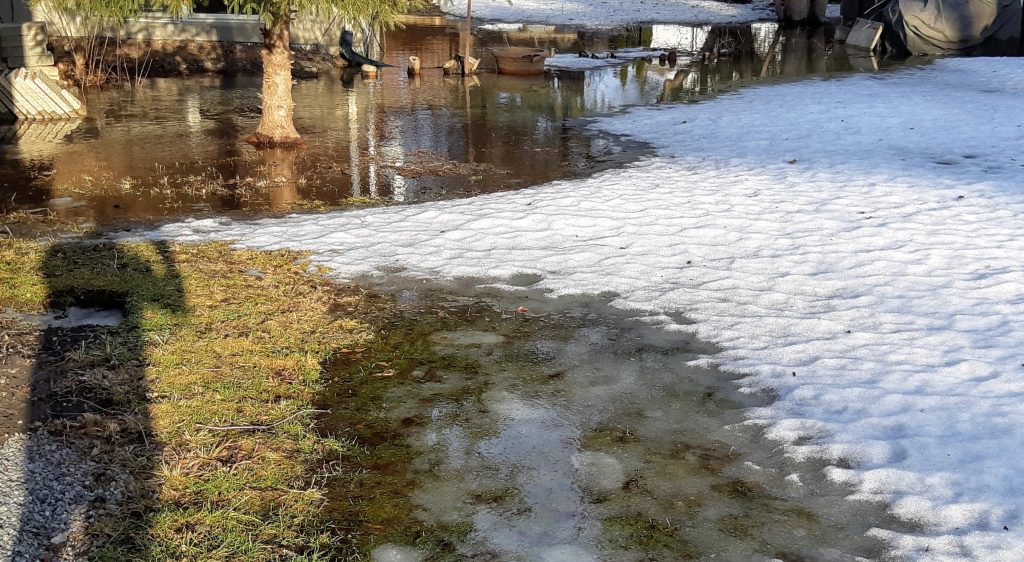
Seasonal flooding may be as innocent as small puddles on your lawn – or even large lakes. In worse conditions – your property may experience water in your basement – whether from rising groundwater levels – or from snow melt along your foundation. Flooding can be unsightly – but it can also cause damage to structures if not appropriately dealt with.
Spring Flooding – Industry Standard Design for Stormwater Management in Ottawa
Whether you’re in a new subdivision with a large pond – or in older neighbourhoods with stormgrates; ditches or culverts – stormwater management has been around for many years. New developments are often required to provide a “Stormwater Management Plan” as part of their approval process, especially for large developments. These plans include design considerations on how to manage (collect, convey and release) rainfall. While the occasional project (usually larger provincial highways) may require a review of conditions related to snowmelt; under today’s standards – review and design for conditions under frozen ground conditions is not standard practice. What that means – is that even though new development is required to address rainfall events and manage water from these events – they’re still not entirely designed to address snow melt conditions.
Now don’t panic! All is not lost! The key consideration here is that seasonal flooding is normal in the Ottawa area.
When is Spring Flooding Less of a Concern?
If flooding on your property is limited to a few days in the spring – this is generally considered normal. Depending on the amount of snow experienced during the previous winter – water may sit in pockets throughout your property for a number of weeks as things warm up in the spring. Unfortunately – until the ground has thawed, melted snow is only able to leave by evaporation or by flowing over the surface towards the nearest outlet. Snow and ice often create their own “grading issues” as things melt unevenly – meaning that overland flow often isn’t possible due to blockages caused by the snow and ice. Once the ground has thawed – water has another means of getting away – which is infiltration!
Even having a puddle on your lawn for a day or two after a heavy rainfall in the spring, summer or fall – is all considered to be “generally acceptable”. As long as the water is ponding in the yard – away from any structures or foundations, this intermittent ponding water is inconvenient, but generally considered part of the Ottawa experience. While minor re-grading may help to reduce the time the water sits on your property – generally if it’s only a couple times a year – the cost of having the work done may far outweight the benefits.
When Should You be Concerned about Flooding on Your Property?
While intermittent seasonal flooding is to be expected – flooding on your property that makes your backyard unusable the majority of the year – is not normal. This generally suggests your property has grading issues – typically associated with a low lying area that has no way of draining out naturally. In favourable soils, these areas will often drain out over a few days – but in challenging, heavy soils – the water may sit there until it evaporates.
- If your property has regular flooding – for more than 48 hours – after almost every rainfall event – that’s not normal.
- If your property is always wet – even days after a rainfall event – and you’re sinking in the mud – that’s not normal.
- If you have water sitting against the foundation after every rainfall event – that’s not normal.
- If it’s the middle of June – and your property is still a bowl of soup while everyone else has nice green lawns – that’s not normal.
How Can We Help
At Nepean General Contractors, we offer Drainage Engineering Services. Our experienced engineering department has over a decade of experience in working on residential and commercial drainage projects – from resolving drainage issues on existing properties (retrofits) to new construction stormwater management designs – and everything in between. We believe in a multi-faceted, iterative approach to solving drainage issues. While the most involved – “throw everything at it” approach might solve the issue entirely – it’s often also quite expensive, particularly on properties where the drainage issues are extensive. Instead, by implementing intermediate steps at a time and employing the “wait and see” approach – we can often reach what our clients consider to be an “acceptable level of service” at less cost.
All of our designs are prepared by a licensed engineer – and reviewed by our construction department. This multi-disciplinerary approach means we are able to optimize construction considerations during the design process. Where grading and drainage solutions have multiple different “right” answers – we find that by working hand in hand with experienced professionals who install the designs, we are able to develop creatives solutions with cost consideration throughout the process.
To learn more about our process for solving drainage issues on residential properties – check out this post.
If you have drainage problems on your property and would like professional help – our in-house engineering design team can assist! If you’re in need of a stormwater management plan for Site Plan Approval – we can help!
Reach out today to see how we can be of service! Please call (613) 894-8683 or fill out our online form and we’ll get right back to you.
